│By Carolyn Beckford, Gale Product Trainer│
Joseph Boulogne, later adopted as Chevalier de Saint-Georges, was born in Guadeloupe, a former French colony. He was a French violinist, conductor, composer, and a soldier.
Boulogne was the first classical composer of African descent to attain widespread acclaim in European music. He composed an array of violin concertos, string quartets, sinfonia concertantes, violin duets, sonatas, symphonies, stage works, and opera comique. He was also a contemporary and rival of Mozart, although it’s likely that racism obscured his recognition as a great composer.
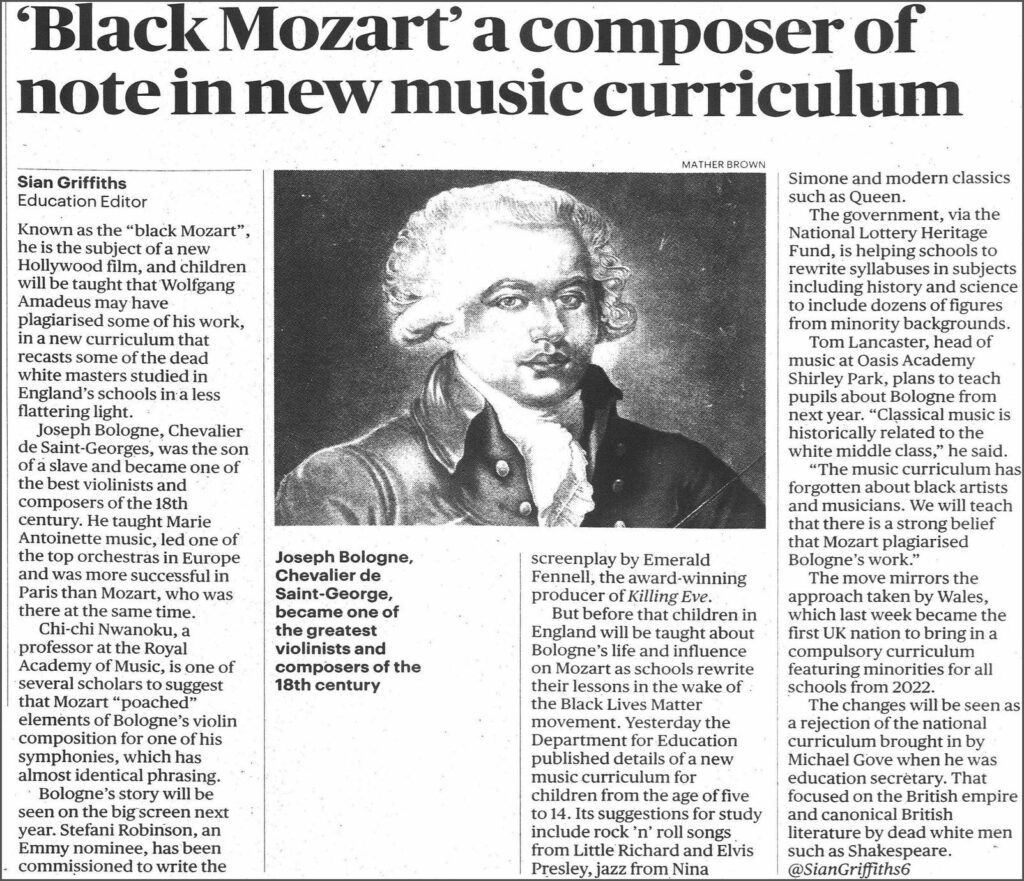
Background
Boulogne was born into a rather common relationship dynamic for enslaved African women. His father, George Boulogne de Saint-Georges, was the white French plantation owner on the estate on which Joseph Boulogne’s mother lived. She was a seventeen-year-old enslaved Senegalese woman who served within the family household.
Although the situation in which Joseph was born wasn’t uncommon, what is rare is that Joseph’s father acknowledged his son, gave him his last name, and later bequeathed him his wealth and estates. Upon his death, George Boulogne left his son and the child’s mother an adequate sum of money, as well as two sugar plantations in Guadeloupe. Because Joseph was illegitimate, he was ineligible under French law to inherit his father’s nobility titles.
Life in France
Joseph studied in France where he was educated as a Frenchman. He excelled at his studies, and along with his academic subjects, he was also talented in fencing, horse riding, and music. He fenced regularly in the halls of Paris against established fencing masters who he often defeated.
At the royal court, Queen Marie Antoinette was reportedly impressed after seeing him win a fencing contest, she granted him the title “Chevalier” (French for “knight”). It is at this time that Joseph adopted the suffix of his father’s plantation and became known as the “Chevalier de Saint-Georges”.
Joseph had a professional relationship with Marie Antoinette who was known for her patronage of the arts, and someone particularly fond of music. She appointed Joseph as the director of her personal orchestra, known as “La Musique de la Chambre”. As the director, Joseph composed and conducted music for the Queen’s private concerts and events.

Joseph loved music and his ambition was to direct the Paris Opera. However, Marie Antoinette informed Joseph that the committee would never choose him because no performer will work under a man of colour.
Boulogne and Mozart
Mozart first came across the Chevalier de Saint-Georges when he moved to Paris and was an admirer of Boulogne. Joseph was said to be good-looking, highly favoured by Queen Marie Antoinette, and something of a local celebrity.
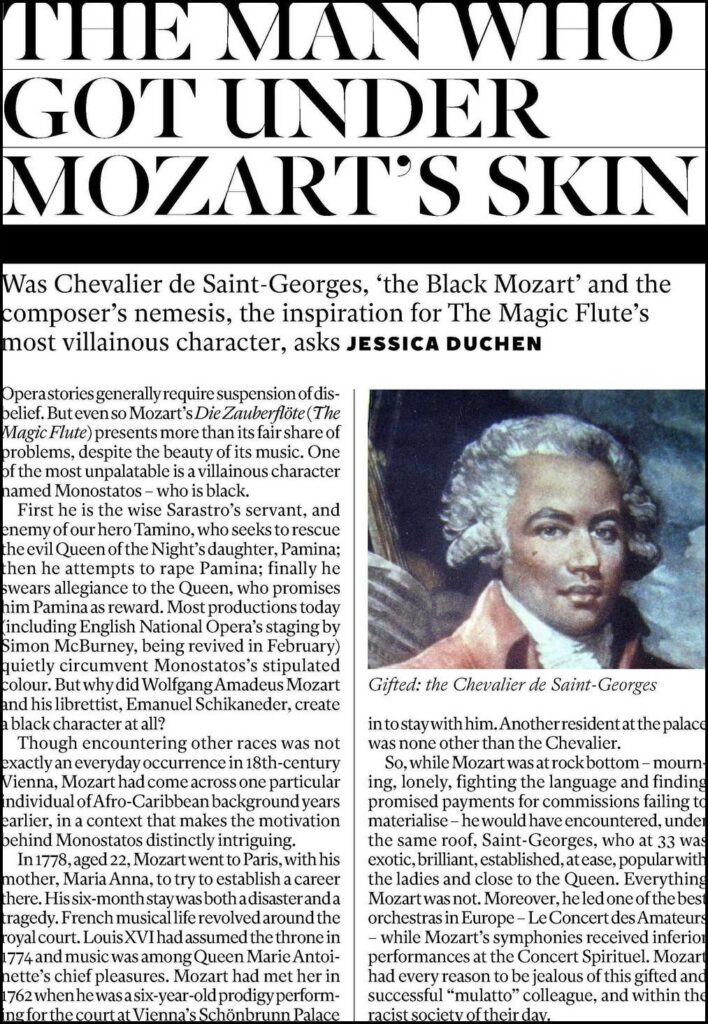
Boulogne was older than Mozart and was already a composer and violinist by the time Mozart gained recognition. Although from vastly different backgrounds, both composers were active during the Classical era and made significant contributions to the development of classical music.
Some historians argued that Mozart plagiarised parts of Boulogne’s work. Mozart reportedly stole one of Boulogne’s Sinfonia Concertante but he also wrote the opera, The Magic Flute, and included a villainous black character called Monostatos, reportedly based on Boulogne.
![Thicknesse, Robert. "Circus comes to town." Times, 6 Apr. 2005, p. 18[S].](https://review.gale.com/wp-content/uploads/2024/07/4-751x1024.jpg)
Because of the strong links and comparisons to Mozart, Boulogne is often called ‘the Black Mozart’. But many feel the comparison is unfair, and it should really be Mozart who is called the ‘White Chevalier’.
Not the Only Prominent Musician
Although the most prominent musician of colour at the time, Joseph Boulogne wasn’t the only one. Joseph Antonio Emidy was another successful musician and composer of African descent with exceptional musical talents. Born in Guinea, Emidy was captured and sold into slavery. He was transported to Brazil and later to Portugal, where he served as a violinist in the Royal Marines Band of the British Navy.
Joseph Emidy eventually settled in Cornwall, England, where he became a respected figure in the local music scene. He performed as a violinist, composed music, and taught students. His compositions blended European classical music with African rhythms and melodies, showcasing his unique musical heritage.
Emidy faced racial discrimination which limited his opportunities, as referenced in the below article. He was someone alongside Boulogne who was restricted because of skin colour.

The French Revolution and Haiti
Following the outbreak of the French Revolution, Joseph Boulogne left for England. He spent several years in England where he gained recognition as a composer, conductor, and violinist. He organised benefit concerts for amateur musicians, composed music, performed, and conducted orchestras, making him well-regarded in English society.
Upon his return to France, Joseph Boulogne joined the National Guard, serving as a colonel in the Légion St Georges. This was a military unit formed as a regiment of free “citizens of colour” who fought for the French Republic against planters and the British forces. The unit was named for the Chevalier de Saint-Georges and played a significant role in the Haitian Revolution. Joseph Boulogne was one of the colonels in this first all-Black regiment that ultimately helped lead the Haitian Revolution to the abolition of slavery and the establishment of Haiti as an independent nation.
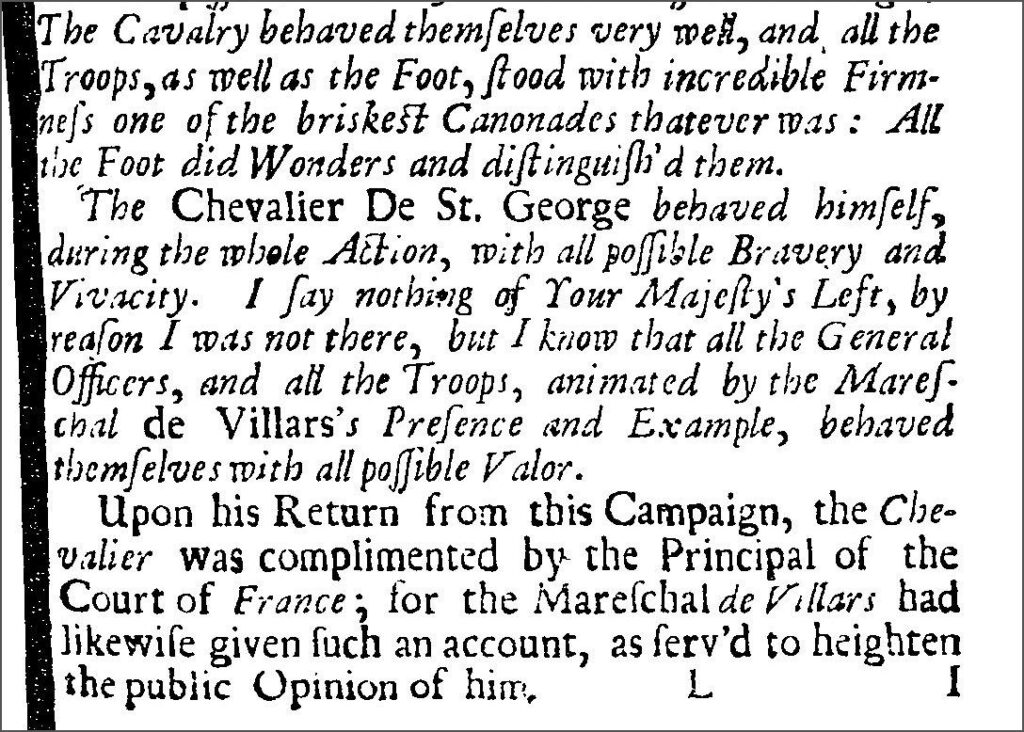
During the French Revolution there was upheaval and a huge change in French territories which would see the music and name of Joseph Boulogne almost erased from history. France went through a tumultuous period that led to Napoleon declaring himself as Emperor. His reign saw a shift in musical tastes and preferences, and the popularity of Joseph Boulogne’s music decline.
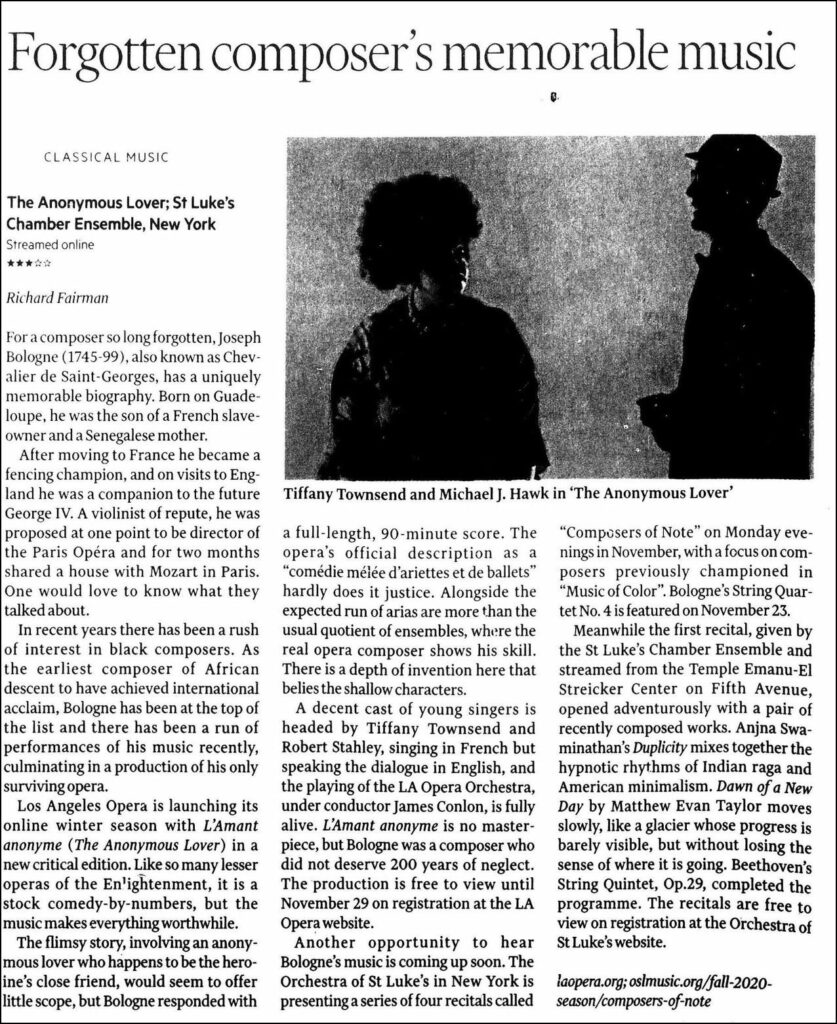
Napoleon reinstated slavery in the French colonies through the Law of 20 May 1802. The Law reversed the policies of the government that had granted freedom and equal rights to previously enslaved individuals. It is reportedly at this time that the music and history of Joseph Boulogne was destroyed, and his achievements erased.

Rediscovering Joseph Boulogne
The music of Joseph Boulogne has seen a resurgence of interest in recent years, with his contributions to classical music being rediscovered. Efforts have been made to recognise Boulogne and give credit to his incredible talent and ingenuity, including a recent biographical film being made of his life and career.
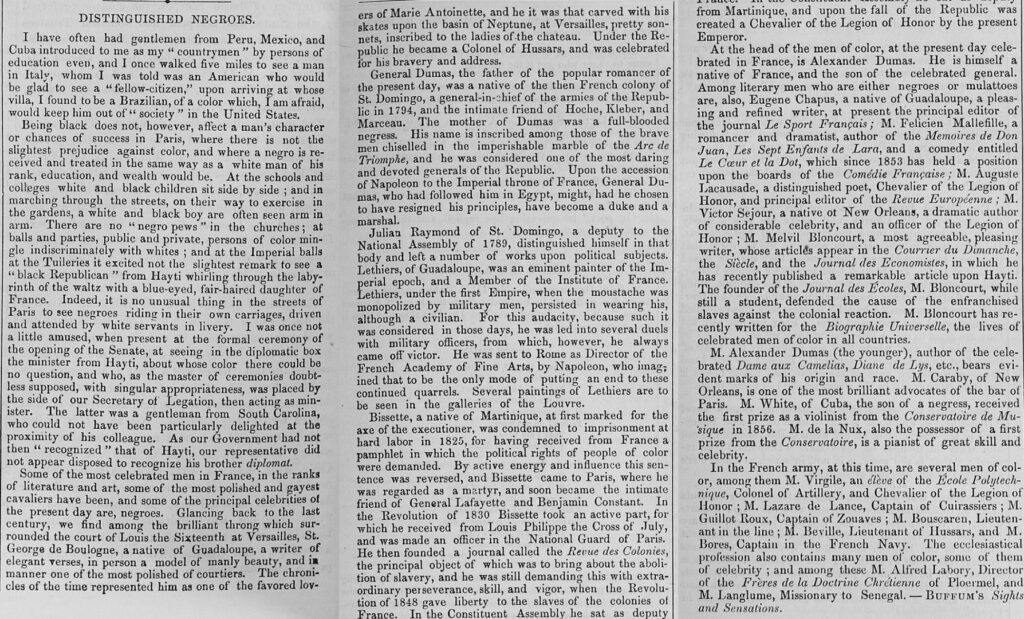
Plays, radio programs, and music charts have started to bring Joseph Boulogne’s music and name into the public consciousness to recognise his talents. Boulogne is being highlighted more often as Composer of the Week in newspapers like The Times.
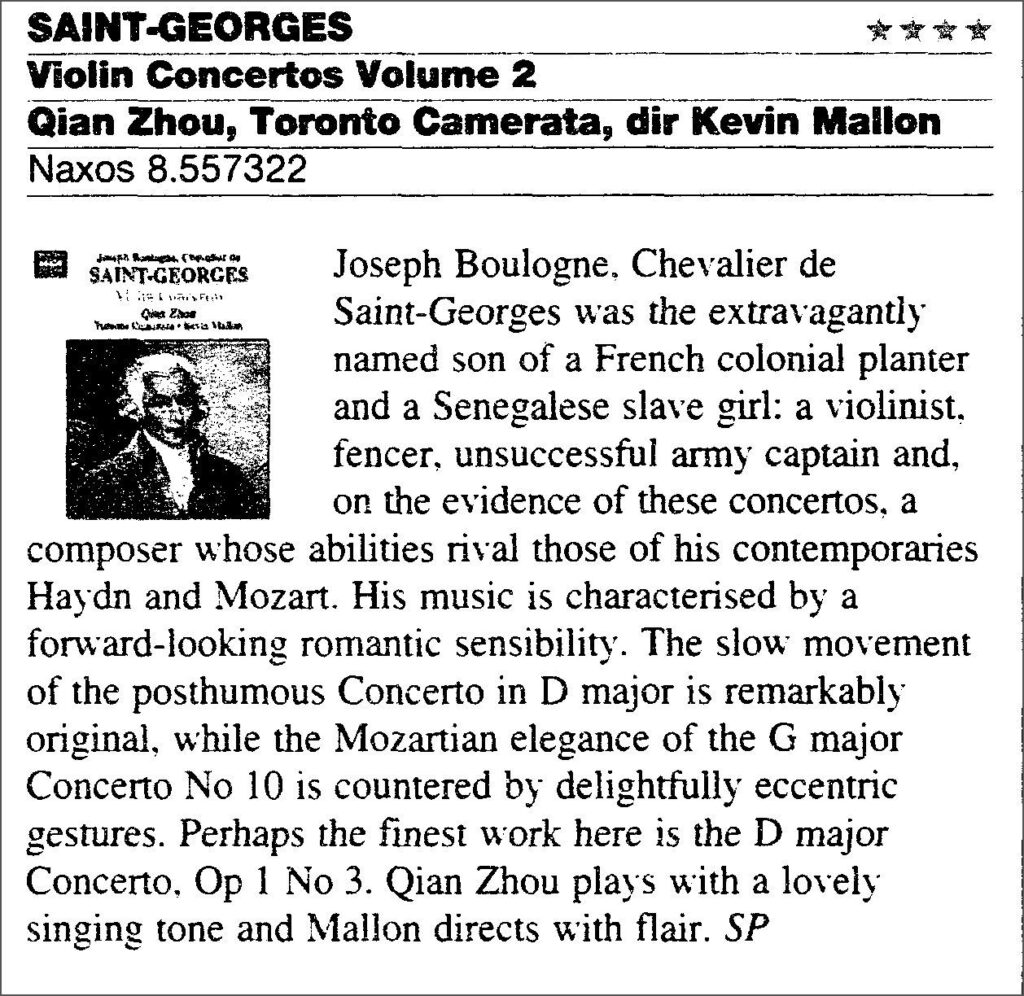
A vaudeville play written by Jean Anouilh called “Le Chevalier de St. Georges” offers a fictionalised account of the life of Joseph Boulogne. The play explores themes of identity, racial prejudice, and societal expectations where the Chevalier de Saint-Georges is portrayed as a talented and charismatic character who defies social norms and overcomes racial barriers to pursue his passion for music.
Although both Joseph Emidy and Joseph Boulogne’s work have been lost to history, it is hoped that more attention to their music would revitalise the memory and the interest in their work and heritage. Boulogne’s work in particular continues to be performed globally.

Whilst it’s admirable and long overdue that Boulogne is getting the recognition he truly deserves, perhaps over time he will become more known for his music and not his background, racial identity, or his disposition at birth that is so often used to introduce him as a musician.
If you enjoyed reading about Joseph Boulogne, then check out these posts:
- Honouring Madam C. J. Walker: Using Gale Primary Sources to Represent Black Women’s Resistance to Racist American Beauty Standards
- Finding Black Female Authors in the Women’s Studies Archive
- The Phantom of Popularity
Blog post cover image citation: Mather Brown, Portrait en couleur de Joseph Bologne de Saint-George, d’après Mather Brown, 4 Avril 1788, https://commons.wikimedia.org/wiki/File:Saint-George_(Joseph_Bologne_de_Saint-George)_in_blue.png

